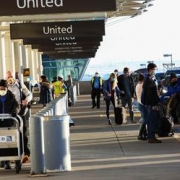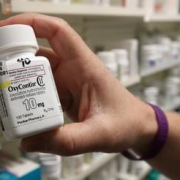Patient communications are no longer fit for purpose, and although Covid has brought this to the fore, the problems will continue for a long time after the vaccine roll-out if they are not resolved.
Single-patient study adds to debate over Gilead’s remdesivir for Covid-19
Antivirals, Azithromycin, Clinical Trials, Coronavirus Disease (COVID-19) Pandemic, COVID-19 Studies, Doctors, Hydroxychloroquine, Medical Journals, Nature Communications, R&D, Remdesivir, Scientists, Survival Rates, World Health OrganizationA single-patient study conducted by British scientists found that Gilead’s remdesivir could be highly effective against Covid-19, raising questions about previous studies that found the antiviral drug had no impact on death rates from the disease.
A clinical trial of the widely used antibiotic azithromycin in hospitalized Covid-19 patients found no convincing evidence of benefit, prompting doctors to announce that they have closed that section of the trial.
‘COVID chat’: Officials urge Americans to stay home over holiday
Antibody Therapeutics, California, CNN, Coronavirus Cases, COVID-19 Deaths, Death Tolls, Doctors, Fox News Channel, Government data, Health Officials, Hospitalized COVID-19 Patients, Hospitals, Midwest, Politics, Regeneron Pharmaceuticals, Surgeon general, Texas, Thanksgiving, Travelers, U.S. Centers for Disease Control and Prevention, U.S. government, United StatesU.S. health officials and politicians pleaded with Americans to stay at home over the Thanksgiving holiday and abide by constraints placed on social and economic life as record coronavirus caseloads pushed hospitals to their limits.
OxyContin maker Purdue Pharma pleads guilty to criminal charges
Addictions, Bankruptcy, Business, Criminal Charges, District Judges, Doctors, Former Blockbusters, Investigations, Kickbacks, New Jersey, OxyContin, Painkillers, Plea Deals, Purdue Pharma, Therapeutics, U.S. Justice Department, U.S. Opioid CrisisPurdue Pharma LP pleaded guilty to criminal charges over the handling of the company’s addictive prescription painkiller OxyContin, capping a deal with federal prosecutors to resolve an investigation into the drugmaker’s role in the U.S. opioid crisis.
Covid-19 shots could reach first Americans by mid-December, top health official says
'Herd Immunity', BioNTech, Coronavirus Disease (COVID-19) Pandemic, COVID-19 cases, COVID-19 inoculations, Doctors, Emergency Use Authorization, Immunizations, Joe Biden, Nurses, Pfizer, U.S. Centers for Disease Control and Prevention, U.S. governmentU.S. healthcare workers and others recommended for the nation’s first Covid-19 inoculations could start getting shots within a day or two of regulatory consent in December, a top official of the government’s vaccine development effort said.
The chances of transmission of Covid-19 during professional sports events are very low, a British doctor researching the impact of the disease told Reuters.
World’s top intensive care body advises against remdesivir for sickest Covid patients
Antivirals, Coronavirus Disease 2019 (COVID-19), Dexamethasone, Doctors, EU, Gilead, Hospitals, Interim Data, Medical Professionals, Papers, Remdesivir, Scientific Papers, Steroids, Therapeutics, World Health OrganizationThe antiviral remdesivir should not be used as a routine treatment for Covid-19 patients in critical care wards, the head of one of the world’s top bodies representing intensive care doctors said, in a blow to the drug developed by U.S. firm Gilead.
Covid-19 fatality rate down 30% since April, study finds
Analysis, Blood Thinner, Coronavirus Infections, COVID-19 Deaths, Covid-19 fatality rate, COVID-19 forecasts, COVID-19 Studies, Dexamethasone, Doctors, Forecasts, Hospitalized COVID-19 Patients, Steroids, United States, University of Washington's Institute for Health Metrics and Evaluation (IHME)The likelihood that a coronavirus infection will prove fatal dropped by nearly a third since April due to improved treatment, researchers at the University of Washington’s Institute for Health Metrics and Evaluation (IHME) said.
Many Covid-19 survivors are likely to be at greater risk of developing mental illness, psychiatrists said, after a large study found 20% of those infected with the coronavirus are diagnosed with a psychiatric disorder within 90 days.









